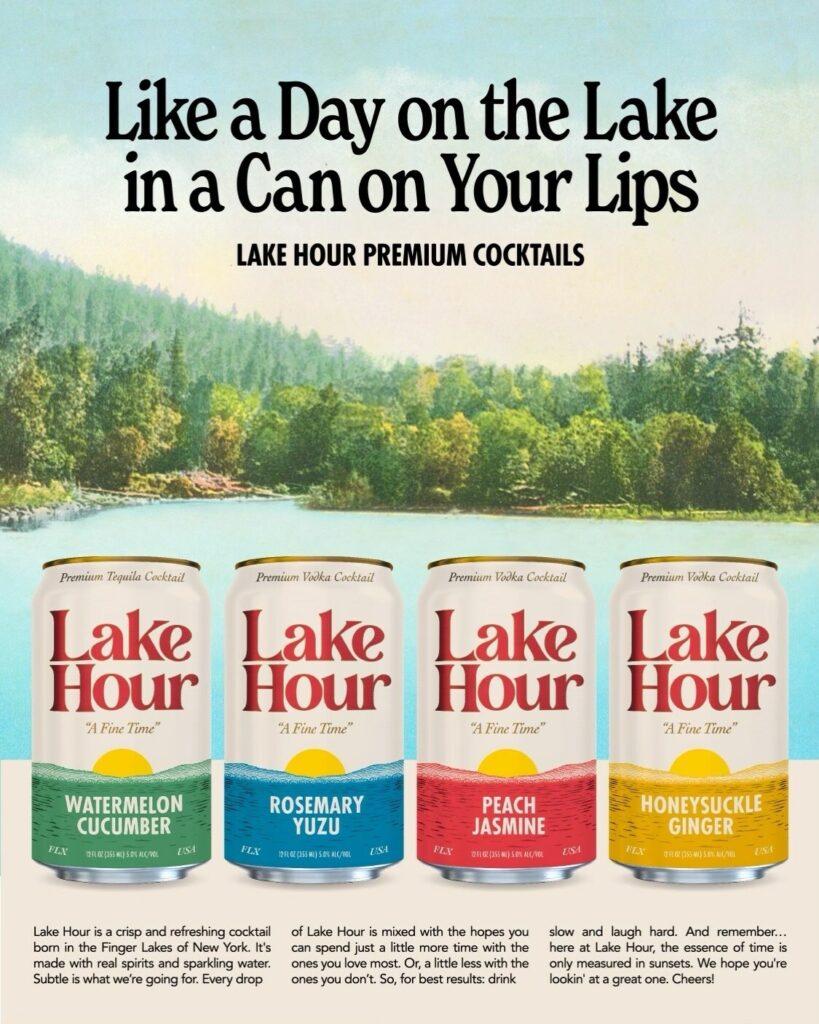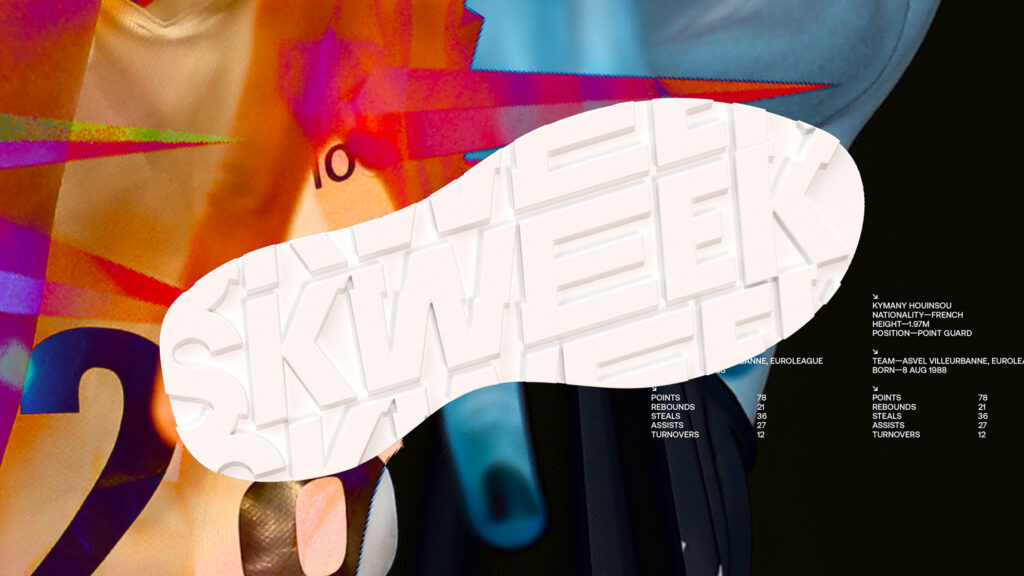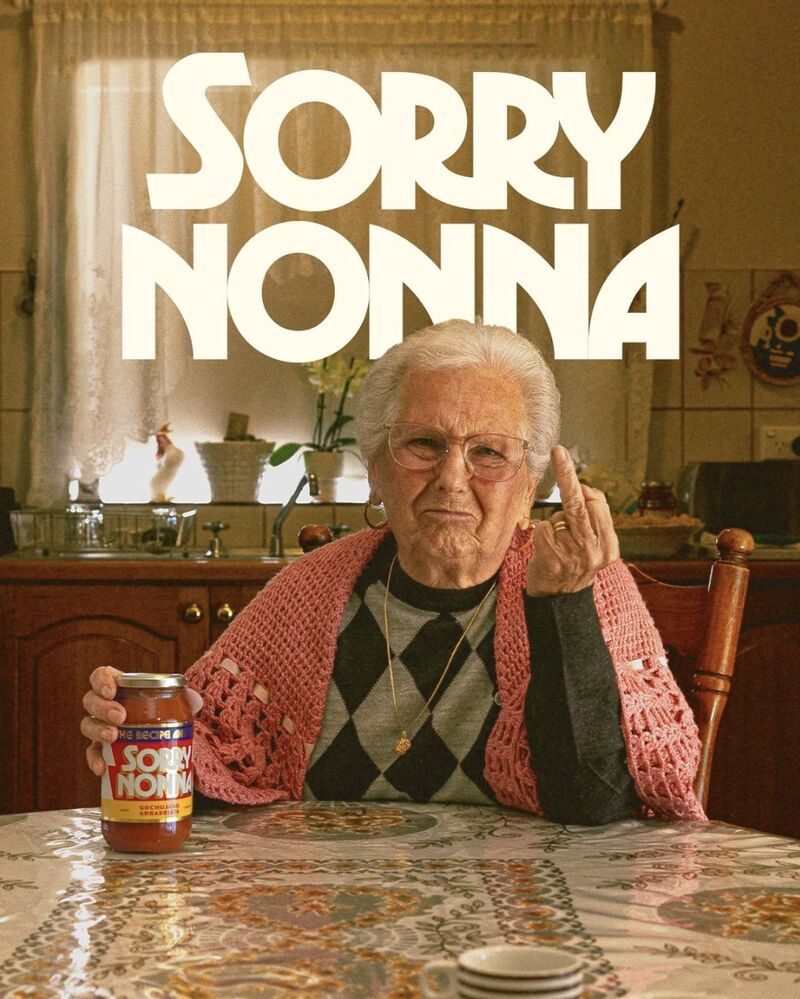Last week we launched our new series, ‘How’d They Come Up With That?’, which examines some of our favorite recent naming work from around the world.
The intent behind this series is two-fold. Firstly, it’s us showing our love for the great brand names being created in the industry. And secondly, it’s about pulling back the curtain on Monika’s approach to demonstrate how our generator has been designed to mimic the pathways used to arrive at such names.
Next up:

Image credit: Lake Hour
This is one of our favorite brand names of recent times. Lake Hour, a sparkling cocktail line launched in late 2023, stands out as a masterclass in evocative naming.
Created by film producer Richard Peete and actor Wyatt Russell, the name immediately connects with people’s treasured memories of time spent on the lake. As Russell puts it, “It seemed to us that so many people had some core memory of a story on the lake in their formative years that was integral to who they were.”
The name has practical value in its communication of a drinking occasion, and emotional value in its ability to transport you back to fond moments: whether that’s sitting on a boat or playing in the water with a drink in your hand.
Reflecting on this, there are a few ways in which Monika can arrive at similar solutions.
One possibility is through one of our many Compound models. These models leverage a massive database of English words that are correlated positively and negatively across 250+ emotions. Based on the product description and desired personality attributes from the brief, Monika generates word combinations that carry evocative – and sometimes surprising – qualities.
We might also land on a brand name like Lake Hour through one of our Metaphor models, which utilizes a custom database and LLM. In particular, our Nostalgic Metaphor model identifies relevant ideas, events and objects that resemble shared memories and experiences.

Image credit: Interbrand
SKWEEK is a streaming platform for European basketball and a hub for sports culture.
The brand name, developed by Interbrand, is a perfect ‘IYKYK’ name that creates immediate recognition and appeal among its target audience: the ‘squeak’ of sneakers on the hardwood.
We love the raw onomatopoeic nature of the name, but it’s how the name connects with its community through shared understanding that elevates it to great heights.
There are a couple of ways in which our generator could land at a name like SKWEEK. The obvious contender is our Onomatopoeia model, which draws from an extensive list of onomatopoeic terms and correlates them with relevant briefing inputs to provide potential brand names.
In their raw form (i.e. Squeak), trademarking might remain an issue. And so we set our mutations to work. Our ‘Sounds Like’ mutation would make this kind of leap, as it’s designed to create real and coined words while retaining pronunciation. We also have a Letter Substitution mutation that is designed to make phonetically equivalent substitutions, resulting in transformations into a more ownable and stylistically-pleasing spelling such as SKWEEK.

Image credit: Sorry Nonna
Sorry Nonna is an Australian pasta sauce brand that blends traditional Italian recipes with global flavors. Their own words say it all: “We love our Nonna, and we love pasta, but both have become boring. So, we stole Nonna’s recipes and spiced it up.”
Their spiced up products include a Limoncello Marinara and a Gochujang Arrabiatta. And Nonnas across Australia aren’t happy about it.
This is the kind of name that keeps on giving. The tongue-in-cheek humor provides an incredible platform for the brand to build from, while their choice of name also elevates the perception of the product — making it sound homemade while tapping into a sense of nostalgia and inter-generational traditions that so many can relate to.
The rest of the brand identity, developed by Weekdays out of Melbourne, only reinforces the impact of the name.
While we have a wealth of models that develop compound names, landing at a solution such as this would rely on our Conversational Idioms model. This model is designed to uncover both familiar and lesser-known colloquial phrases, of which something like “sorry nonna” could be surfaced. The model has the ability to create incredibly distinctive brand names, which – bonus – are usually available to trademark.
This latest batch of names demonstrates the brilliant work going on across our industry, and makes us excited to continue collaborating with agencies and in-house teams to arrive at such great names more efficiently.
See you next week.
